
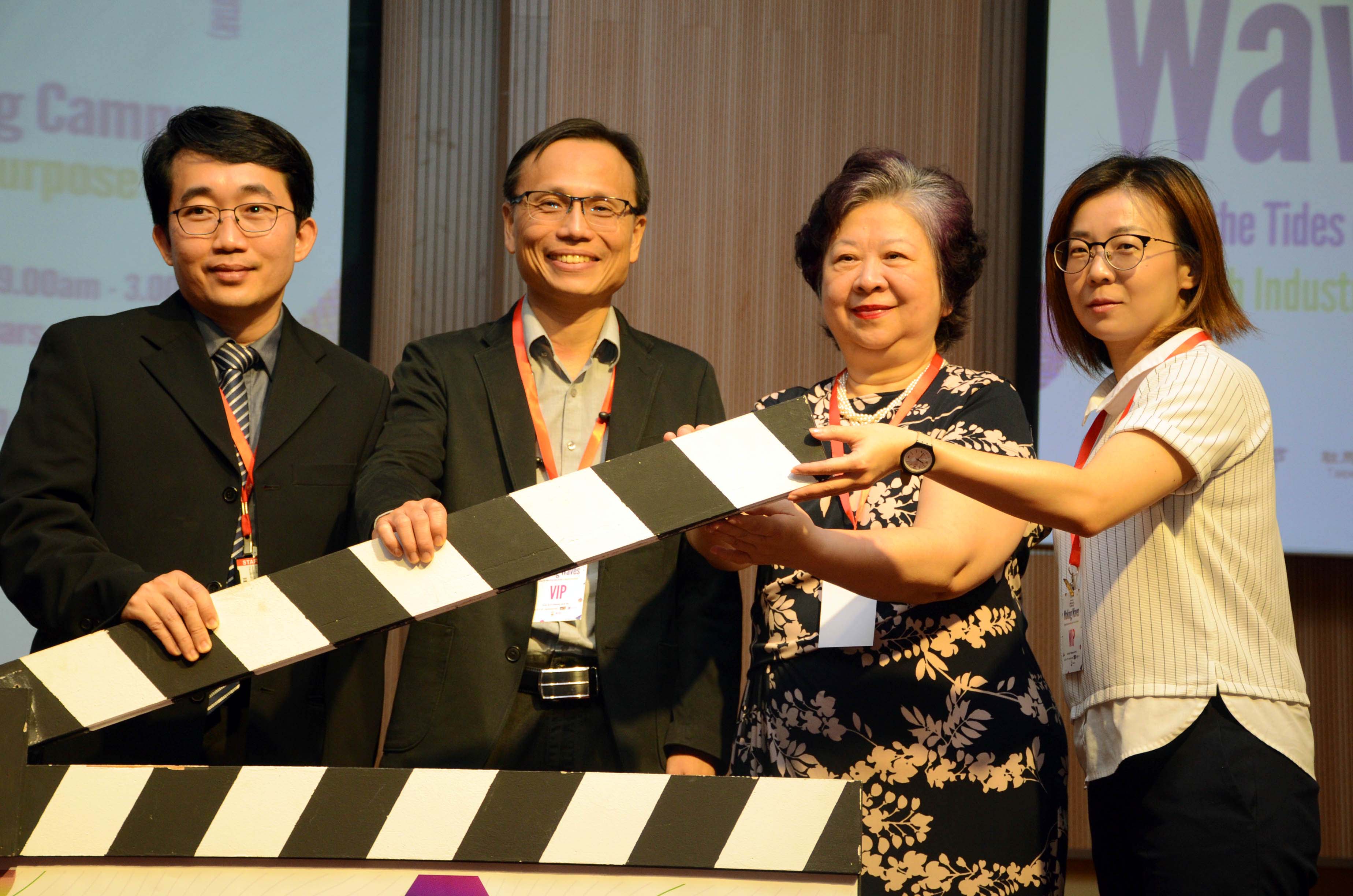
From left: Dr Tneh, Prof Lee, Peggy Chou and Jenching Lin officiating the programme
The Taipei Economic and Cultural Office in Malaysia (TECO) and UTAR Faculty of Creative Industries (FCI) hosted “Making Waves: Riding the Tides of New Media in the 4th Industrial Revolution” on 17 and 18 July 2018 at UTAR Sungai Long Campus. This is the second installment of the Spotlight Taiwan series with the objective of promoting international cultural exchanges and stimulating students’ interest and appreciation of diverse cultures in a globalised community.
This culmination of events aimed to inspire and captivate some 300 audiences with the presence of Independent Filmmakers, Social Media and Internet doyens, and academics from Taiwan and Malaysia. This forum served as a platform to bring together thought leaders from the academia and industry alike to share their knowledge, experiences and techniques.
Present at the opening ceremony were Director of Culture Division of Taipei Economic and Cultural Office in Malaysia Peggy Chou, UTAR Vice President for R&D and Commercialisation Prof Ir Dr Lee Sze Wei, Short Film Director and Scriptwriter Lien Chien Hung, FCI Dean Dr David Tneh Cheng Eng, Culture Division Admin Executive of Taipei Economic and Cultural Office in Malaysia Mabel Ng, Culture Division Secretary of Taipei Economic and Cultural Office in Malaysia Jenching Lin, speakers, panelists, staff, students, Chong Hwa Independent High School students and the public.
In his welcome speech, Prof Lee highlighted how the Fourth Industrial Revolution affects the world, “It is a very timely choice to conduct this programme because the Fourth Industrial Revolution is already happening with all the latest technologies. It has not only impacted our daily lives, but also the way we do creative work including filmmaking. It opens up new possibilities and techniques that can be used in a production.” He also emphasised that a good outcome will come from great and creative ideas, not from technologies alone.
In her opening speech, Peggy Chou applauded the strong bond that Taipei Economic and Cultural Office in Malaysia and UTAR have, “The Ministry of Culture of Taiwan is approaching professionals and universities to create a healthy long-term relationship like we have with UTAR. It is truly an honour to have UTAR again for the second year. This is a golden opportunity to discover more about the latest trend. I hope the future filmmakers here can gain more information and ideas from the professionals of Taiwan and Malaysia.”
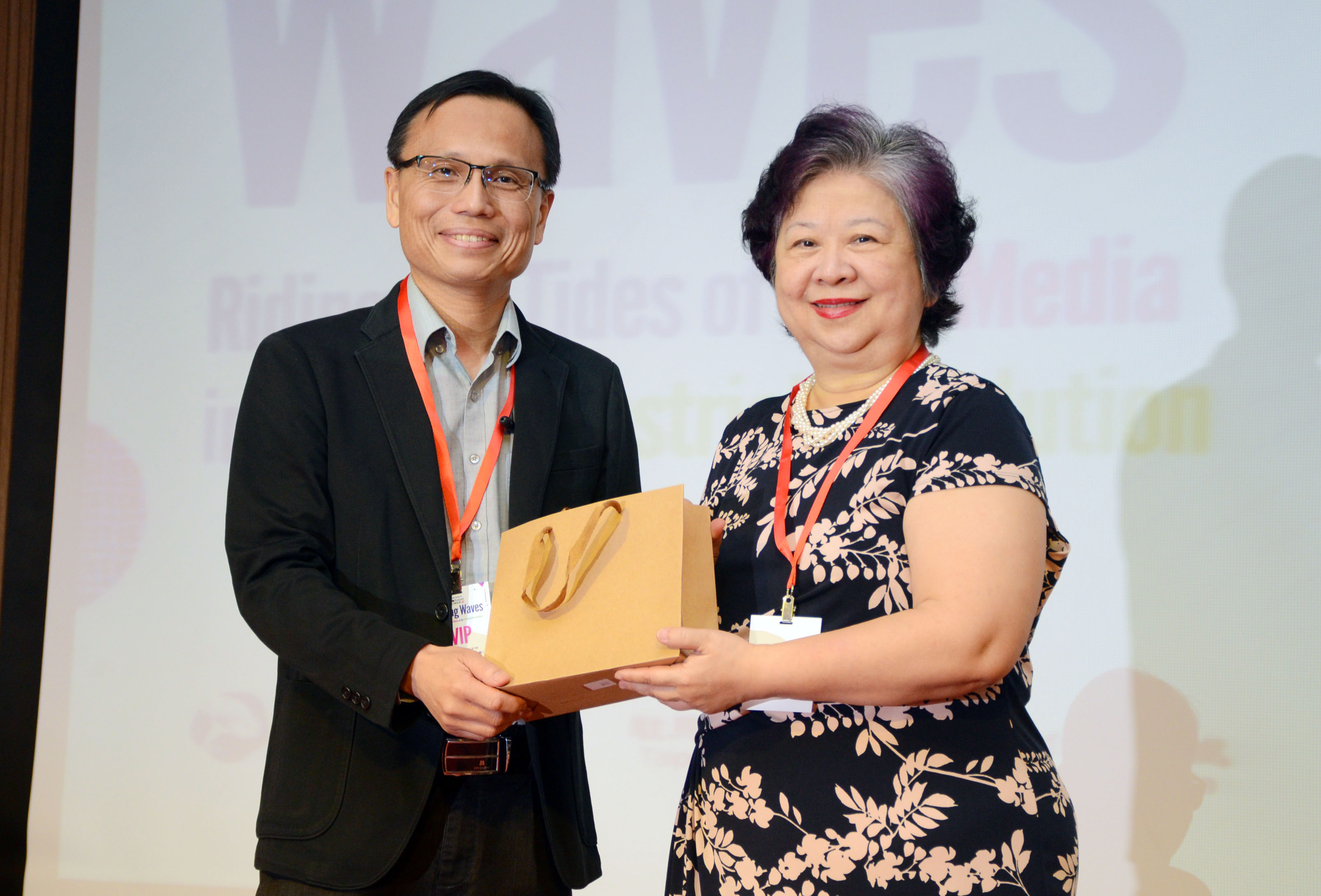
Prof Lee (left) presenting the token of appreciation to Peggy Chou
UTAR is the first partner for the Spotlight Taiwan Project in Malaysia. Previously, Taiwan Information Design, Art, Technology, Education Association (Info DATE), The Ministry of Culture, Taipei Economic and Cultural Office, and UTAR collaborated on “Little Spotlight Animation Showcase” in 2017.
Throughout the two-days, comprehensive talks, discussions and forum covering a wide range of topics related to film industry were conducted. It mainly revolved around the nature and prospect of independent filmmakers in Malaysia and Taiwan in the atmosphere of the Fourth Industrial Revolution. According to Taiwanese Film Director Lien Chien Hung, filmmakers often face the dilemma of choosing whether to sell their films to the broadcast media or to broadcast it for free online. Despite being a more relevant and popular choice, the latter makes it more difficult to trace the target audience.
The event also provided tips and guides for young filmmakers, especially regarding creativity. “Creativity is not only about finding new ideas. Even if an idea is cliché, it can still be polished to create a new one,” said scriptwriter Dennis Lai Chaing Ming. Giving a more hands-on exposure, award-winning Film Director Quek Shio Chuan, who is also a UTAR alumnus, shared the making process of creating “Rumah Epik Fantastik” TNB Raya commercial from scratch.
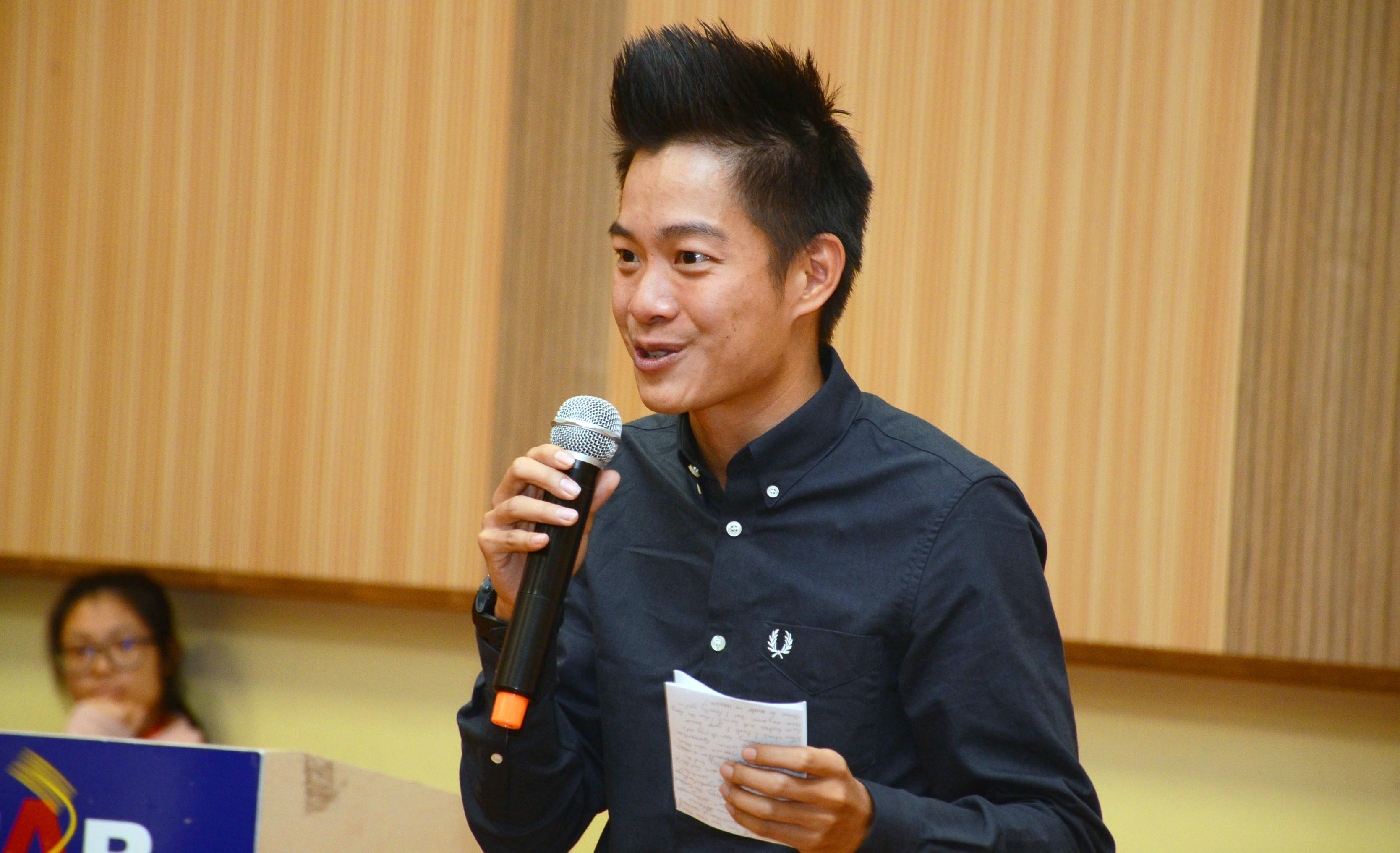
Quek sharing the details of his past project
While the Fourth Industrial Revolution era seems more pertinent to younger generations, award-winning local Film Director James Lee said it is never too late for any filmmakers to jump into online platforms. “You are still young, if you want to be a content creator, you should start now,” he advised the audiences. He also reminded that films are not only shot using advanced tools/equipment, one can also make use of their smartphones. He and other film directors have successfully used smartphones to record films and music videos previously.
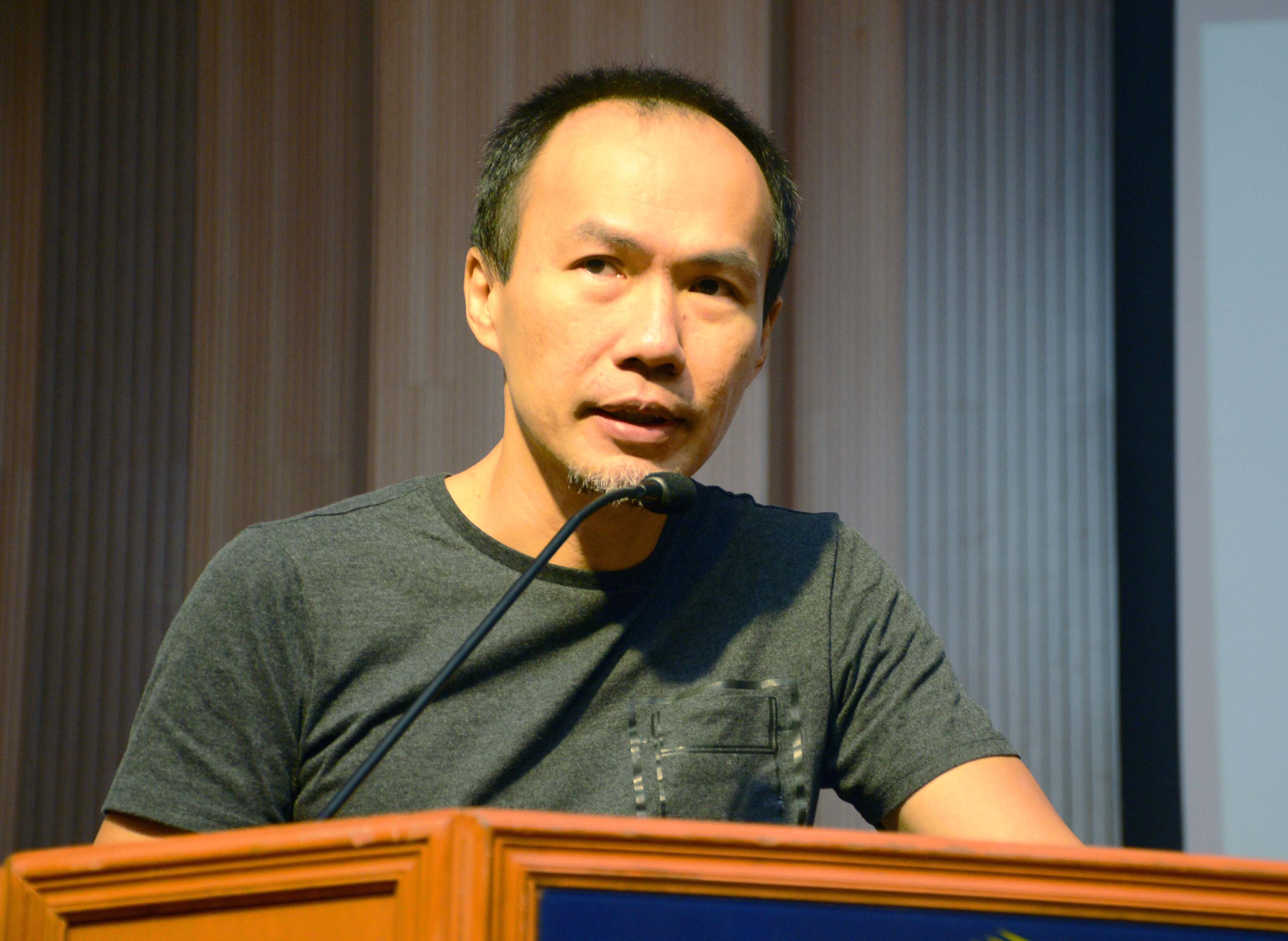
James Lee advising the young audiences to start filming now
Taking a different direction in the discussion, Film Director Chong Keat Aun and Anthropologist Prof Dr Mei-Ling Chien discussed the importance of oral history. Oral history is information obtained from intricate interviews with people that are related or involved in an incident. “The data that is obtained from an interview can be quite different from a written history because it highly relies on context rather than facts,” said Prof Chien. According to Chong, interviews can give a better inspiration in producing films related to history. By using interviews, humane stories and emotions can inspire film directors to create more impactful films compared to written history.
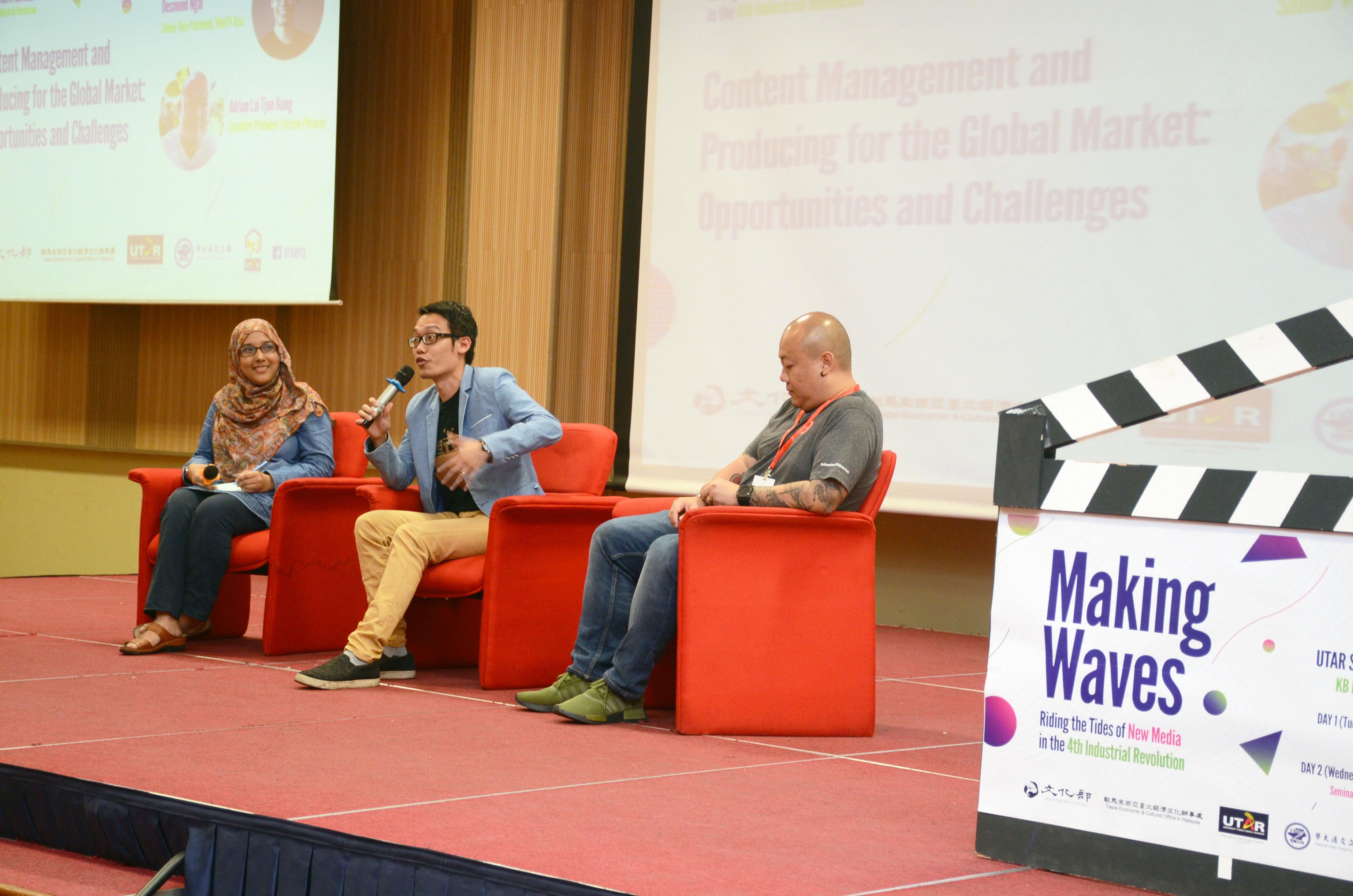
Desmond Ngai (middle) sharing his thoughts with Adrian Lai and moderator Iza Sharina
A more marketing-related discussion was held between Senior Vice President of Global Alliances of WebTVAsia Desmond Ngai and Executive Producer of Passion Pictures Digital Adrian Lai Tjun Kong. Ngai encouraged the audiences to be proud of being Malaysians, “We should learn and acquire western skills and ideas but not their content that we see as inappropriate. We should maintain the Asian cultures and values as they are our identity and it distinguishes us from the rest of the world.”
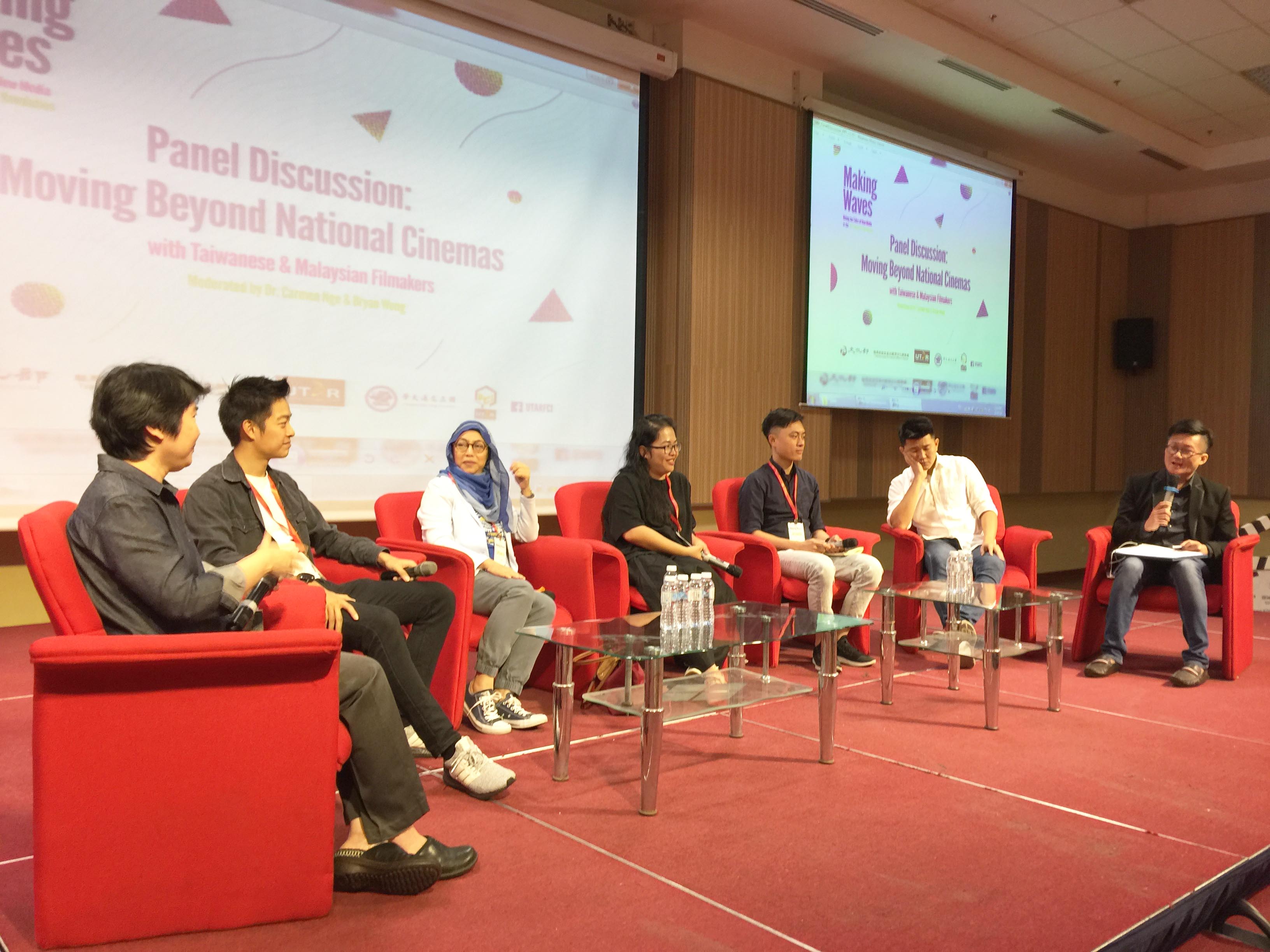
The lineup of great filmmakers, from left: Moderator Dr Carmen Nge Siew Mun, Quek, Tunku Mona, film producer Linda Ling, Lien, Lau and moderator Bryan Wong
The event took a grand finale with a forum lined up by five panellists including award-winning Malaysian Director Tunku Mona Riza to discuss on moving beyond national cinemas. “Film is not purely entertainment. All I wanted was to create a film for the community. I did not aim for international recognition. What I hoped was to make people more aware, so that they will not be judgmental when they witness an autistic child’s behaviour,” said Tunku Mona, reviewing her movie “Redha” (2016). “The more local the movie is, the more international it becomes,” Lien replied when asked on the initiative that can be taken to go international. Movies that reflect the rich Asian culture and tradition are said to have their own exclusive values that gained interest especially from the other side of the world. The forum also discussed the use of language in a movie. Sometimes the producer and director will face the dilemma of choosing the right language and dialects to be used in the film. However, according to Malaysian Film Director Lau Kek Huat, it is not a big issue, “Although you do not speak the language used in the film, you can still understand the movie through the emotions and visuals. That is the magic of film.”
The event was coloured with a requisite screening of short films and festival ads including “All for Love” by James Lee, “Rumah Epik Fantastik” by Quek Shio Chuan, “100th Birthday Wish” by Lien Chien Hung, “Cemetery of Courtesy” by Chong Keat Aun and “Firefly” by Lau Kek Huat.
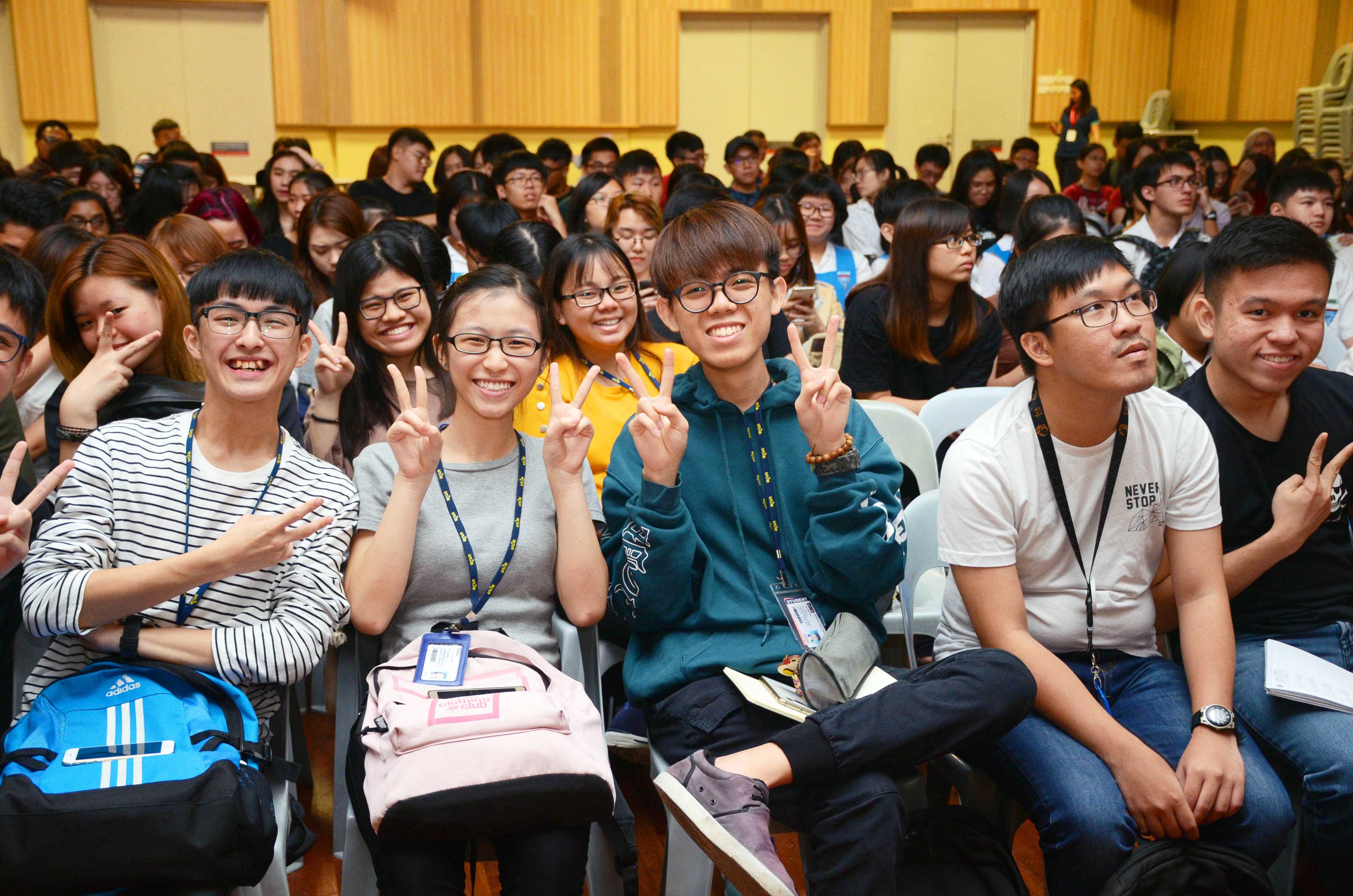
Students enjoying the talks and screening of short films
At the end of the programme Chong Hwa Independent High School student Vivi Ann Thu Pui Ka said, “We are in a society that makes videos about school events. We know and have some experiences with such things. However, this programme gave us a broader perspective on filmmaking. Prior to this, what matters to us were the technical skills, but now I realise that ideas and contents are equally important, perhaps even more.”

Thu (middle) and her friends Lim Jia Yee (right) and Wong Xuan Wei (left) are among the 68 students from Chong Hwa Independent High School
“I often hear people saying that in Asia we have a lesser market when it comes to making successful films. But what I witnessed was five successful filmmakers sharing their stories. They are young and they definitely proved those people wrong. I want to be a film director,” said UTAR Broadcasting student Tomas Arun Dourado.
© 2019 UNIVERSITI TUNKU ABDUL RAHMAN DU012(A).
Wholly owned by UTAR Education Foundation Co. No. 578227-M LEGAL STATEMENT TERM OF USAGE PRIVACY NOTICE